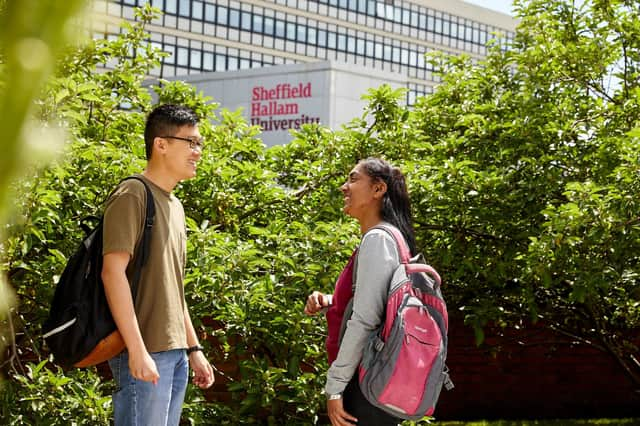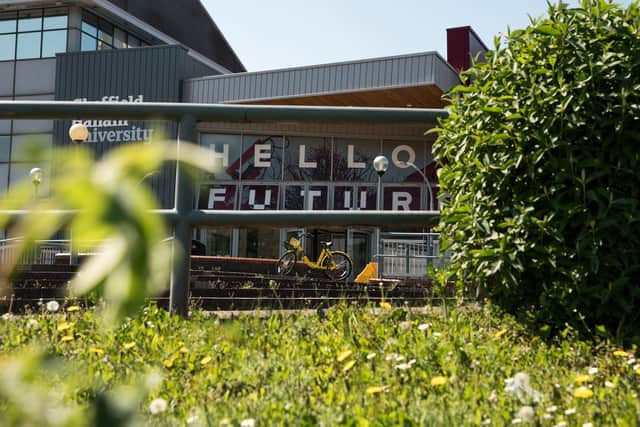Northern Lights: This will create a fabulous modern and green gateway for Sheffield


This is a landmark for us, and I am proud to be leading this critical area of work for the University. The climate emergency has wide-reaching implications not just for our organisation or the higher education sector, but for the city and region and for our country more broadly, It is the greatest challenge facing humanity and we are all going to face enormous change in everything that we do and everything that we experience.
Anchor institutions - large organisations that seek to improve the long-term health, social and and economic welfare of communities – have a duty to take action to address their contribution to the climate emergency. Universities have additional roles to play, conducting research to find solutions for challenges the world faces, and in educating the next generation of experts, inventors, thinkers and leaders.
Advertisement
Hide AdAdvertisement
Hide AdOur strategy is simple. First, we must reduce the greenhouse gas emissions we generate as an organisation. This is not as simple as it sounds and we are on top of it, having started work some time ago to understand in detail which of our activities generate emissions, and we have already seen a steep reduction in carbon dioxide emissions of 44% since 2015. We recognise that successfully achieving other commitments will also be critical – such as the electrification of university vehicles by 2024; using 100% green electricity; and a mix of innovations to reduce waste, save energy, and use smarter technology. We have further to go, of course, but we are on track to achieve our target, as part of our pledge to the UN Race to Zero, to be net zero on direct emissions by 2030.


Sheffield Hallam includes around 4,000 staff and 35,000 students, so our people are our major strength. The second part of our strategy is to mobilise our community of staff and students to contribute ideas, skills and time to provide tangible help to address climate change. Ensuring climate action is central to our civic and regional work will mean working closely with regional partners on critical city-wide agendas like biodiversity, active travel and decarbonisation plans, where we are arguably stronger together. We are designing new courses for our students and providing advanced training for our staff, so that our communities are skilled and able to provide solutions now and into the future.
Our university is known for its applied research that makes a difference in the real world, and the third strand of our strategy is to focus research on climate action. This is a huge opportunity for the university and for us all, and we are investing strongly in this. We are going to recruit a number of senior academic leaders to Sheffield Hallam over the next year or so, to drive world-class research across computing, health, societal change, climate action and sustainability. These areas are interconnected, and we need new ways of thinking to be sure that the new ideas and inventions we provide are for everyone’s benefit.
The new buildings going up at Howard Street is a new campus for Sheffield Hallam, and we are very excited about it. It’s important for Sheffield, as it will create a fabulous modern, green gateway to the city as visitors and residents arrive. It’s essential for our students, as it will provide innovative spaces for learning, socialising and working. And it’s absolutely key to our climate strategy: our £250m Campus Plan is the largest net zero capital development of its size and shape.
Advertisement
Hide AdAdvertisement
Hide AdBy utilising smart technology, new software and other building interventions, we will ensure that we use our estate as efficiently and effectively as possible.
If all this sounds ambitious, it is.
We have no choice: the transition towards net zero will see a fundamental shift from the systems of today, from changing how we generate, store, and consume energy, to how we travel and in the objects we use.
This is transformation on the scale of the first Industrial Revolution and inaction is not an option, for any of us.
However, let’s not be pessimistic – just like as the industrial revolution shaped Sheffield and the world before, the new, clean opportunities for people, communities and economies as we transition towards and beyond a net zero world are colossal and are there for us all to grab.